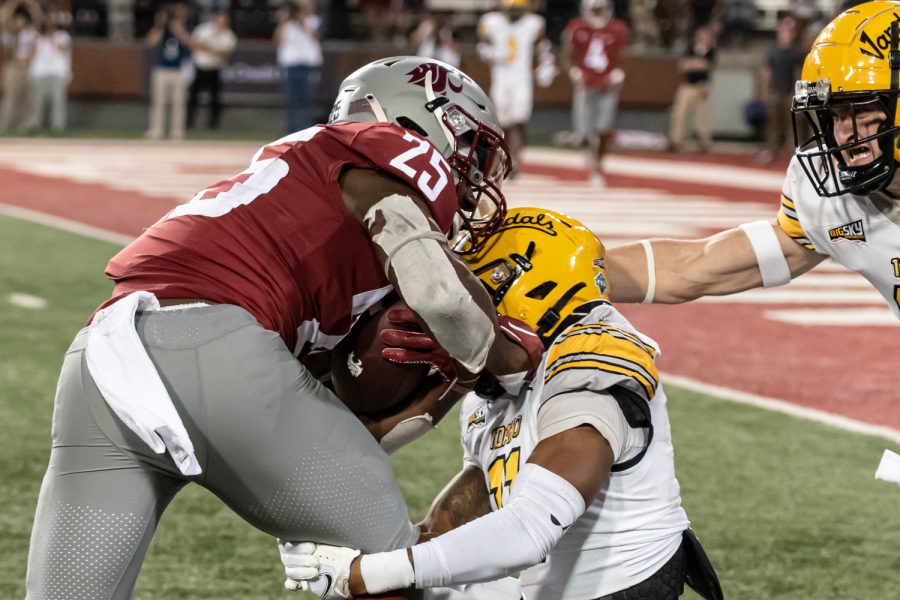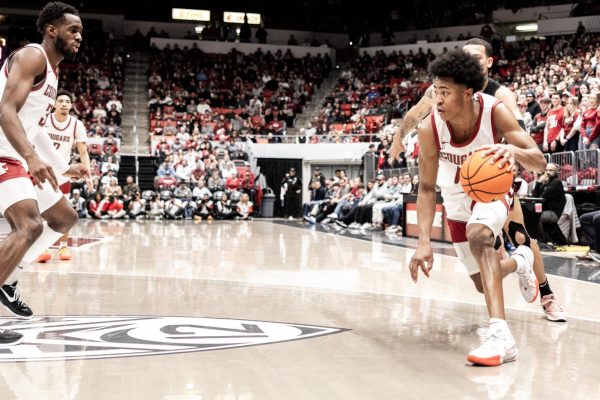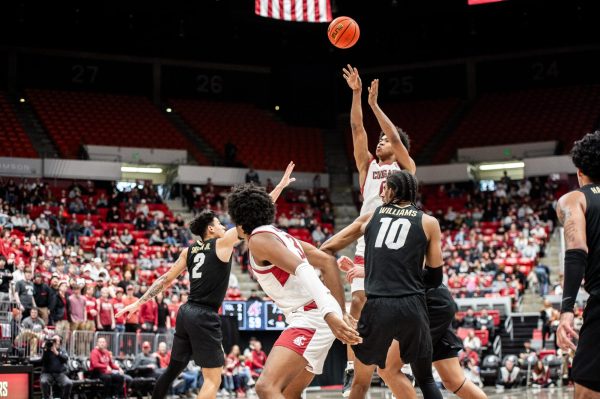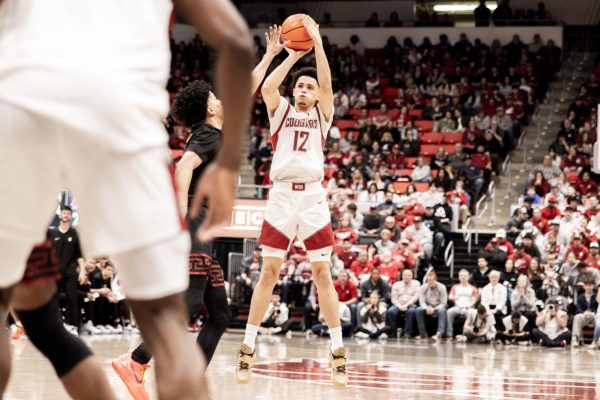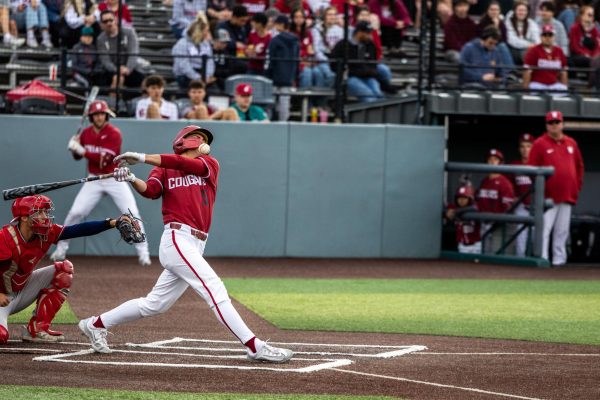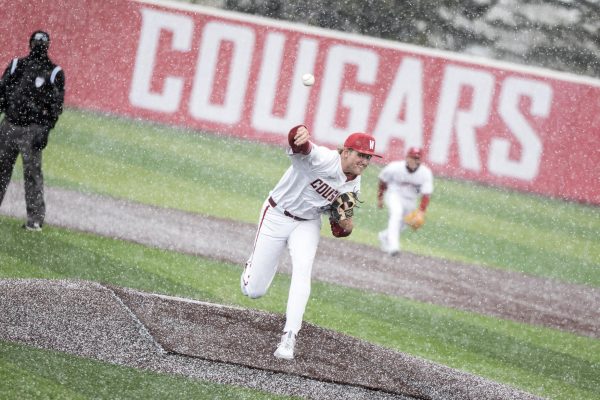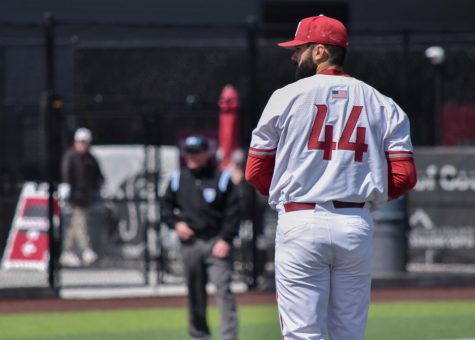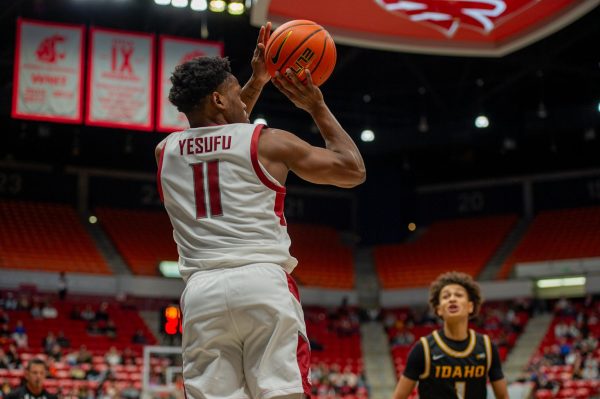6.7 mile difference in drug policies for student-athletes
Differences in Athletics between University of Idaho and WSU
WSU running back Nakia Watson runs through the Idaho defense during an NCAA football match, Sep. 3, at Martin Stadium.
January 18, 2023
University of Idaho and WSU both have athletic teams, but U of I is allowed to conduct randomized drug and alcohol testing whereas in the state of Washington, it is prohibited.
Washington has legalized the use of cannabis. In contrast, Idaho has it completely illegal.
Across both universities, cannabis punishment outlines for student-athletes are similar.
“We have everybody go through a drug and alcohol screening evaluation and they meet with a professional therapist or counselor. They go through a screening to determine if there’s a dependency issue,” said Chris Walsh, associate athletic director for student-athlete health and performance at U of I.
This statement closely aligns with WSU’s student-athlete handbook, which states students will undergo treatment once testing positive for cannabis or any other banned substance by the NCAA. Both universities follow guidelines given to them by the NCAA.
One question that arises when it comes to the use of cannabis by student-athletes at U of I is if a student-athlete would have to deal with legal aspects after receiving the university’s repercussions for drug use. However, there have been no cases of this, Walsh said.
The main difference the two universities share is the consequences for student-athletes with the use of alcohol.
U of I does not necessarily have an alcohol policy that connects with its substance abuse policy. They do have rules from a university standpoint specifically with underage drinking, however, it falls under a code of conduct with the university rather than an athletic policy, Walsh said.
Alcohol abuse is included in the athletics substance abuse prevention program section in the WSU student-athlete handbook.
“Obviously, if they’re over the age of 21, they can drink if they use it, but there are certain teams that may have policies where they have dry seasons, where nobody regardless of your age is supposed to be partaking in that,” said Chris Lange, athletic director for sports medicine for Olympic sports at WSU and athletic trainer.
“Reasonable suspicion will be based on the observation of behavior or conduct, or the presence of specific physical and emotional characteristics or patterns, which are symptomatic of the use of prohibited drugs or abuse of alcohol,” according to the student-athlete handbook.
This rule came to fruition in February 2021 when former WSU quarterback Jayden de Laura was arrested for suspicion of a DUI. De Laura was suspended from the team until July 2021 when he was found not guilty of the incident, according to an ESPN article.
The Sports and Science Institute for the NCAA’s list of banned drug classes includes alcohol and beta blockers. At U of I, these standards are still set in place when student-athletes are in the off-season.
“We have the ability to conduct randomized testing or testing for reasonable suspicion at any point in time, if a student-athlete is here, on campus. Obviously we’re not going to require somebody to be tested when they go back home for a break,” Walsh said.
This differs at WSU, where random testing is not allowed.
“We’re not allowed to due to the state of Washington’s reasonable suspicion laws. We’re not allowed to do random tests. There has to be reasonable suspicion brought forward as the policy says,” Lange said.

